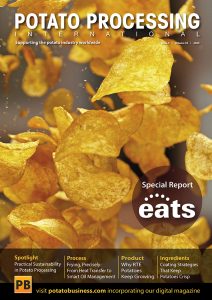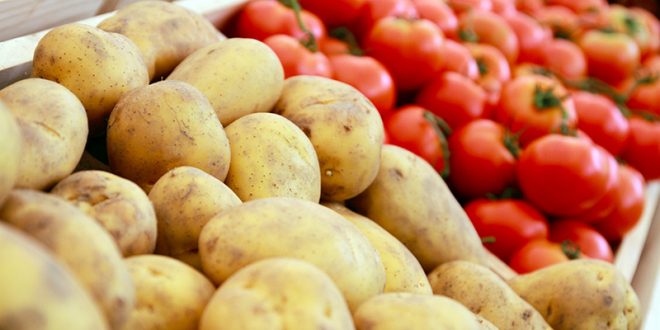German Federal Institute for Risk Assessment Reminds about Danger of Solanine in Potatoes

The German Federal Institute for Risk Assessment (BfR) is reminding people about the correct handling of potatoes, following a case of poisoning caused by a potato dish.
The main concern is represented by glycoalkaloids, of which solanine is an important derivative. This is a natural ingredient of the potato, but the ingestion of higher amounts of glycoalkaloids can lead to poisoning in humans.
“Although only a few cases of poisoning caused by potato dishes have been reported and documented in the last 100 years, green and strongly germinating potatoes should not be consumed in order to avoid health risks,” says BfR president professor dr. Andreas Hensel. Based on the latest level of available knowledge, the BfR has derived a provisional NOAEL (No Observed Adverse Effect Level) of 0.5mg of glycoalkaloids per kg body weight and day. This equates to the highest dose at which no undesired health effects were observed. To avoid an exceedance of the NOAEL, the glycoalkaloid content in table potatoes should be no higher than 100 mg per kg fresh weight. Up to now, potatoes with a glycoalkaloid content of up to 200 mg per kg have generally been considered safe.
To keep intake of glycoalkaloids as low as possible, the BfR is issuing a reminder on the following standard recommendations relating to the storage and preparation of potatoes:
•Potatoes should be stored at a cool, dark and dry place
•Old, dried up, green or strongly germinating potatoes, as well as potato peels as snacks consisting mainly of potato peelings, are not suitable for consumption
•Green parts and so-called “eyes” should be generously removed from potatoes
•If consumers want to eat the skin along with the potato, only undamaged, fresh potatoes are fundamentally suited for this purpose
•Potato dishes should not be eaten if they have a bitter taste
•Small children in particular should not eat unpeeled potatoes
•Consumers should not reuse the water in which potatoes have been boiled
•Deep-frying fat for potato products should be replaced regularly
Glycoalkaloids are naturally occurring ingredients in plants of the nightshade family, such as potatoes. They are enriched in particular in green, germinating and damaged potatoes and in potato peel. In potatoes, tα-solanine and α-chaconine are the dominating glycoalkaloid derivatives. They help the plant to ward off pests and germs. In humans, cases of minor poisoning cause symptoms such as nausea, stomach-ache, vomiting and diarrhea, sometimes accompanied by fever. In severe cases, impairment of consciousness and very rarely complete loss of consciousness can occur, along with disturbances in brain function, breathing and in the cardiovascular system.

















